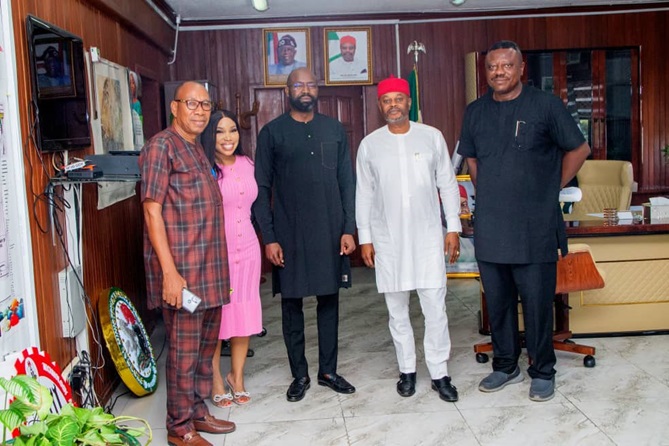…Plans 33000 battery swap centres for tricycles, bikes
The Federal Ministry of Innovation, Science, and Technology has announced a partnership with Data Analytics & Solutions International Limited to implement the Sustainable Energy Access Projects across all 774 Local Government Areas in Nigeria.
The partnership further plans to establish over 33,000 battery swap centres for electric tricycles and bikes across the country, enhancing the shift to renewable energy and reducing dependence on diesel generators.
This collaboration was highlighted in a statement by the Director of Media and Corporate Communications at the National Space Research and Development Agency, Dr. Felix Ale, on Thursday.
Ale noted that the collaboration aimed to address the country’s energy challenges while fostering environmental sustainability.

According to the Minister of Innovation, Science, and Technology, Chief Uche Nnaji, the partnership seeks to tackle Nigeria’s reliance on biomass, which is used by roughly 90 per cent of the population for cooking.
He said through SEAP, the government aims to transition Nigerian households to cleaner energy sources, including biogas and compressed natural gas.
“Through SEAP, DAS will replace biomass in 20,000 households per LGA with clean, low-pressure compressed natural gas and biogas alternatives,” Nnaji said.
“This is a revolutionary step toward reducing harmful emissions, improving public health, and making cooking more affordable for Nigerians,” he added.
He added that “the initiative, which includes significant collaboration with global energy leaders like Siemens and Wartsila, focuses on both immediate and long-term energy solutions.”
Nnaji also noted that SEAP’s biogas component would help establish a circular economy by converting waste into valuable resources.
“SEAP will establish a biogas value chain by financing digesters for farms, schools, and municipalities, converting waste into biogas and organic fertilizer,” the Minister explained.
He said this will not only provide cleaner energy but also support Nigeria’s broader climate action goals.
He noted that in addition to clean cooking initiatives, the project will also improve power supply in rural and off-grid areas.
“The project will deliver at least 5 MW of hybrid gas and solar power to each LGA, with provisions to establish battery swap centres for electric tricycles and bikes at over 33,000 petrol stations,” Nnaji revealed.
He added that the SEAP programme is designed to boost economic empowerment, particularly for women.
“At least 50 per cent of clean fuel distributors will be female entrepreneurs,” the Minister said emphasizing the project’s focus on creating new economic opportunities.
He said the digital payment system integrated into SEAP will also foster financial inclusion for Nigeria’s unbanked population.
Nnaji stressed that this strategic partnership aligns with Nigeria’s commitment to tackling energy poverty while ensuring a sustainable and inclusive future.




